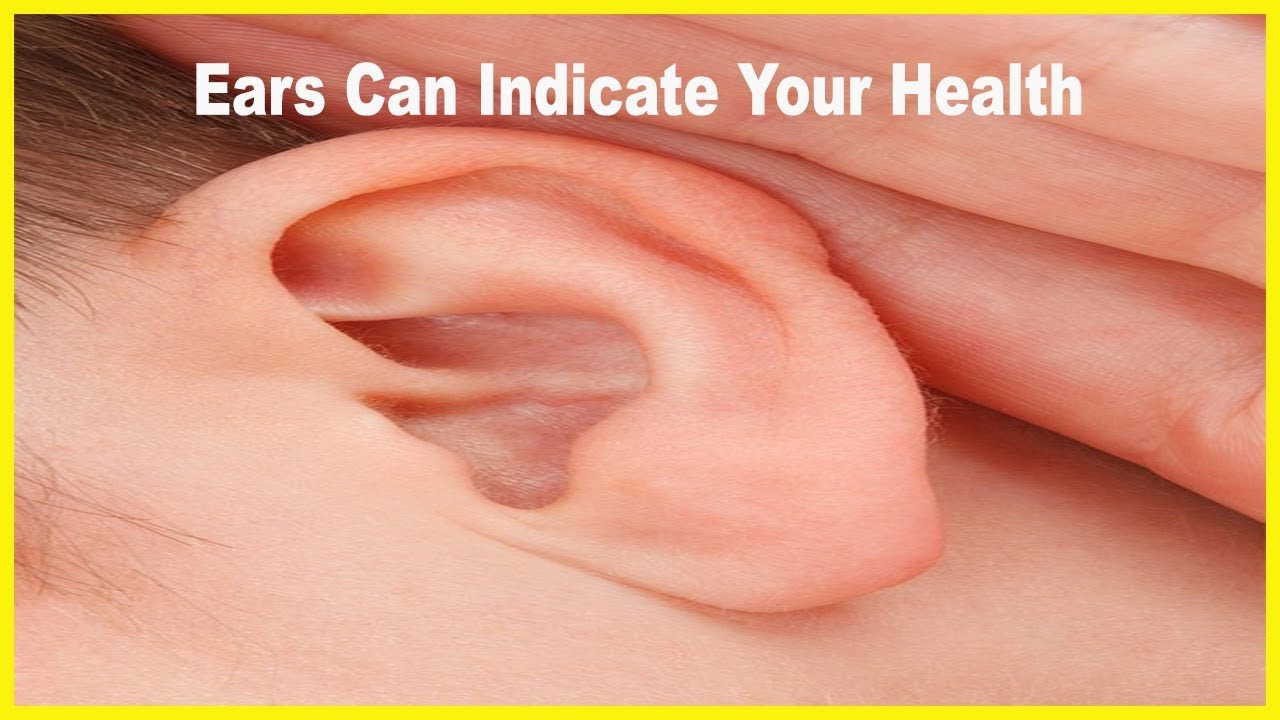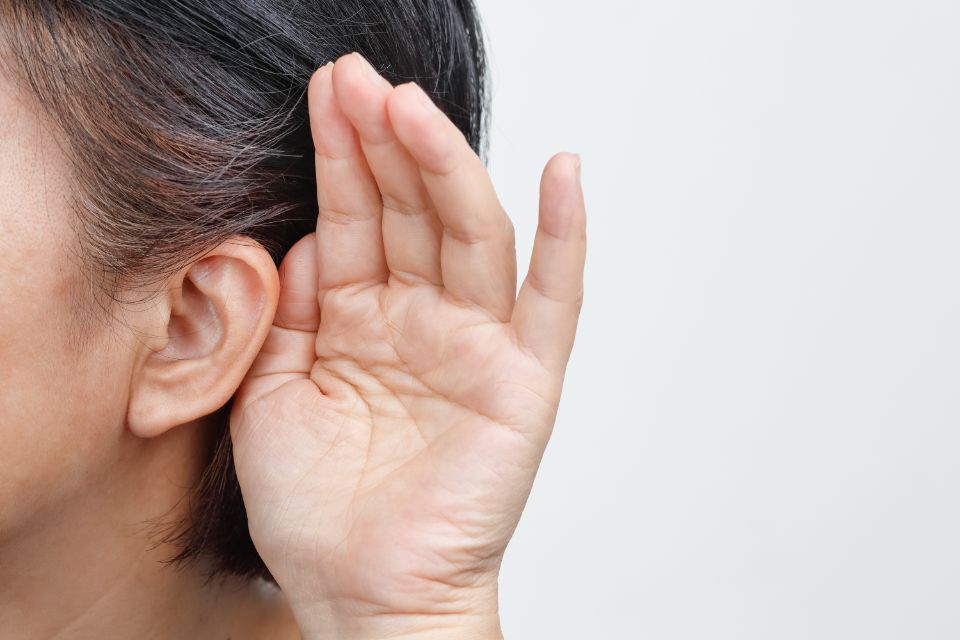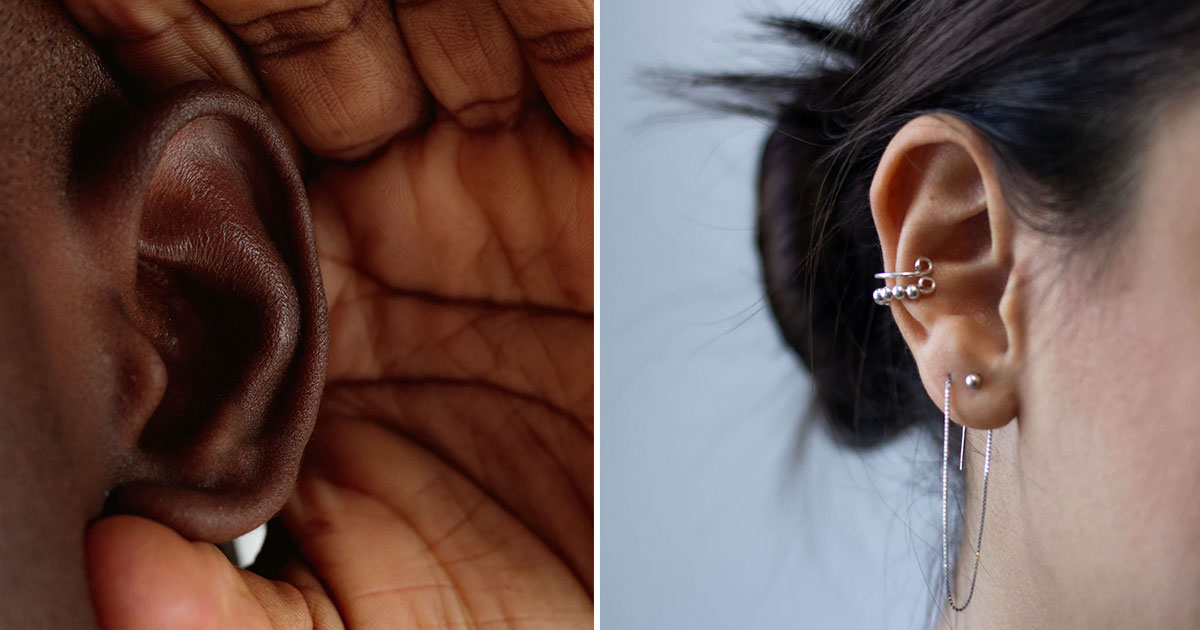Have you ever experienced a strange, fluttering sound in your ears that seemed to come out of nowhere? If so, you're not alone! This phenomenon, known as ear rumbling, can be quite baffling. While it might sound alarming, it’s usually a benign occurrence. In this blog post, we'll explore what ear rumbling is, what causes it, and whether it has any health implications. By understanding this unique auditory experience, you can put your mind at ease and hopefully gain some insight into your own ear health.
What Causes Ear Rumbling?

Ear rumbling is often described as a kind of “thumping” or “crackling” sound. It's not something that everyone experiences regularly, which is why it can be so puzzling. So, what actually causes ear rumbling? Here are some common culprits:
- Tensor Tympani Muscle Movement: One of the primary reasons for ear rumbling is involuntary movement of the tensor tympani muscle. This muscle, located in the middle ear, tenses in response to loud sounds or other stimuli, creating a rumbling effect.
- Eustachian Tube Dysfunction: The Eustachian tube helps regulate pressure in the ear. If it becomes blocked or doesn't function properly, you might hear sounds that resemble rumbling or popping as the pressure equalizes.
- Exposure to Loud Sounds: Sudden exposure to loud noises can also trigger this sensation. The ear muscles may react by tensing up, leading to an auditory experience that's a bit unsettling.
- Tinnitus: Some people experience ear rumbling as a form of tinnitus, which is the perception of noise without an external source. Although commonly associated with a ringing sound, tinnitus can manifest in various ways, including rumbling.
In summary, ear rumbling can result from a combination of muscle contractions, pressure changes, and sensory responses within your ear. While it can be disconcerting, understanding its common causes may help alleviate any concern you have when you experience it. If ear rumbling becomes frequent or is accompanied by pain, seeing a healthcare professional is a smart choice.
Is Ear Rumbling Common?

Ear rumbling, also known as “ear crackling” or “ear popping,” is an experience that many people might encounter at some point in their lives. However, the question remains: just how common is it?
Though ear rumbling isn't necessarily a daily occurrence for most, many individuals will experience it occasionally. For instance, you might notice it when:
- Flying in an airplane, where changes in altitude can create pressure differences in your ears.
- Driving up or down a mountain, which can also affect ear pressure.
- Experiencing sinus congestion due to a cold or allergies, causing your eustachian tubes to become blocked.
This phenomenon is often harmless and typically resolves on its own. However, for some, it can be more frequent. Those who may experience recurrent ear rumbling include:
- Individuals with sinus issues or seasonal allergies.
- People who regularly engage in activities with rapid pressure changes, like scuba diving.
- Anyone with ear conditions, such as eustachian tube dysfunction.
Overall, while ear rumbling is not uncommon, if you find that it occurs persistently or is accompanied by pain, hearing loss, or other symptoms, it’s a good idea to consult a healthcare professional. Remember, it's always better to clarify any concerns with someone who can provide expert advice!
Potential Health Implications of Ear Rumbling

While ear rumbling itself is often benign, it can sometimes indicate underlying health issues. Understanding the potential implications can shed light on when it’s time to seek medical advice.
Here are some *key health implications to consider:
- Eustachian Tube Dysfunction: The eustachian tubes help equalize pressure in the ears. If these tubes are not functioning properly, you might experience frequent rumbling.
- Allergies or Sinusitis: Allergies can block the eustachian tubes, leading to a sensation of ear rumbling. Chronic sinus infections can have a similar effect.
- Middle Ear Issues: Conditions like otitis media (middle ear infection) can contribute to abnormal sounds in the ear.
- Temporomandibular Joint Dysfunction (TMJ): Problems with the jaw joint can create pressure on the ear, leading to rumbling as well.
- Acoustic Reflex: If you notice rumbling in response to loud sounds, it could be your ear's protective mechanism kicking in.
In most cases, ear rumbling might not be a cause for alarm. However, if it becomes a persistent concern, especially with associated symptoms like pain, dizziness, or hearing changes, it's best to consult a healthcare provider for a thorough evaluation. They can provide appropriate treatments or referrals, ensuring your ear health is in check.
When to See a Doctor
Experiencing ear rumbling can be intriguing, but it's crucial to know when it’s time to consult a healthcare professional. While ear rumblings can occur for a variety of benign reasons, certain symptoms warrant a visit to the doctor. Here's what to keep an eye out for:
- Persistent Rumbling: If your eardrum keeps rumbling without stopping for several days, it's time to get it checked out.
- Pain or Discomfort: Any accompanying pain, pressure, or discomfort in your ear should never be ignored.
- Hearing Changes: If you notice any changes in your hearing—like muffled sounds or ringing—it’s crucial to seek help.
- Fluid Discharge: Any fluid or abnormal discharge from your ear can signify an infection.
- Balance Issues: If you experience dizziness or balance problems, this could be connected to your ear issues and requires attention.
- Headache or Facial Pain: Persistent headaches or pain radiating to your face could indicate more serious underlying conditions.
If you're experiencing any of these symptoms, don't hesitate—make an appointment with an ear specialist or your primary care provider. Early diagnosis can often make a significant difference in treatment outcomes.
Management and Prevention of Ear Rumbling
Managing and preventing ear rumbling involves a combination of lifestyle choices and self-care strategies. Here’s how you can tackle this unusual condition effectively:
- Stay Hydrated: Drinking plenty of water can help keep your Eustachian tubes functioning well, reducing the chance of ear rumbling.
- Practice Good Ear Hygiene: Keep your ears clean and avoid inserting objects into them. This can help prevent infections that may contribute to rumbling.
- Avoid Loud Noises: Limit exposure to loud sounds and use ear protection when necessary, as loud sounds can irritate the ear and increase rumbling.
- Manage Allergies: If allergies are a trigger for you, work with your doctor to manage symptoms effectively.
- Limit Stress: Stress can exacerbate many conditions, including ear issues, so incorporating stress-reducing practices like meditation or yoga can be beneficial.
If your ear rumbling is related to something more severe, like an underlying health condition, your healthcare professional may recommend specific treatments or therapies tailored to your needs. Remember—while ear rumblings can be common, taking steps to care for your ears can help ensure you maintain your overall ear health!
Understanding Ear Rumbling: Rarity and Health Implications
Ear rumbling, also known as tinnitus*, is a phenomenon that causes individuals to perceive sounds that are not externally present. This rare auditory sensation can manifest as various noises, including ringing, buzzing, or clicking. While ear rumbling is relatively uncommon, its occurrence can indicate underlying health issues that may need addressing.
The sound itself often arises from the contraction of tiny muscles in the ear, particularly the stapedius and tensor tympani muscles. Here are some key points regarding ear rumbling:
- Causes:
- Exposure to loud noises
- Ear infections
- Fluid in the ear
- Changes in ear pressure
- Other medical conditions (such as Meniere's disease)
- Symptoms:
- Perception of sound in the ear
- Variability in sound intensity
- Associated feelings of pressure or fullness
- Diagnosis:
- Hearing tests (audiometry)
- Imaging tests (MRI or CT scans)
- Detailed medical history and physical exam
- Treatment:
- Sound therapy
- Cognitive behavioral therapy
- Medications (to reduce anxiety or treat underlying conditions)
In conclusion, while ear rumbling is a relatively rare phenomenon, understanding its potential health implications is crucial. If you experience persistent ear rumbling, consulting a healthcare professional can help identify the cause and determine appropriate treatment options.
 admin
admin








